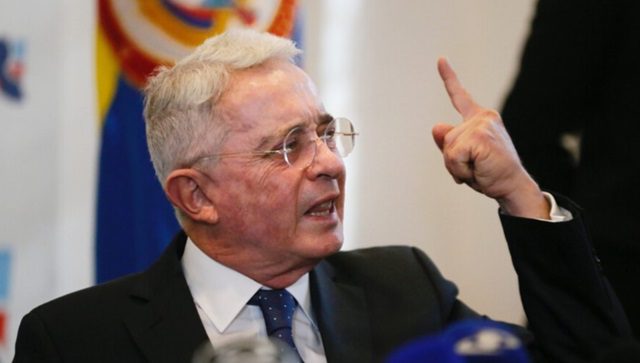BTN News: In a significant move for regional infrastructure, the Government of Antioquia has assumed responsibility for completing a key segment of the Túnel del Toyo project. The local government will oversee the construction of 2.8 kilometers of open road, a 200-meter bridge, and a 1,500-meter tunnel. This comes after the national government handed over a 4.2-kilometer stretch to Antioquia, signaling a critical shift in project management. With new funding requirements of around 330 billion pesos, the completion of this section is a priority for both local and national stakeholders.
However, questions remain about how exactly the remaining work will be financed and executed. Former Colombian President Álvaro Uribe has entered the discussion with a proposal aimed at galvanizing local support and resources to finish the project on time.
A New Funding Challenge: Antioquia Needs Resources
Antioquia faces a steep funding challenge, needing approximately 330 billion pesos to complete the Túnel del Toyo. So far, details on how the department will secure these funds are sparse, but new ideas are emerging. Uribe has suggested that all engineering and architecture firms in the Sociedad Antioqueña de Ingenieros y Arquitectos (SAI) could be contracted for the remaining construction, as was done with the initial phase of the Túnel de Oriente.
This collaborative approach could streamline the process and leverage local expertise, but there has yet to be an official response from the SAI or the Antioquia government.
Uribe’s Innovative Proposal: Financing Through Local Contributions
Former President Uribe has proposed a unique method to gather the necessary funds. He suggests expanding the ‘Vaca Solidaria’ (Solidarity Fund) initiative, a local fundraising effort that began in March to support infrastructure projects in Antioquia. The idea is to create a financial vehicle or society where contributions are pooled, with donors receiving titles or shares in return.
“This could be a co-financing mechanism for the tunnel and its complementary works, providing interest payments to contributors,” said Uribe. His proposal calls for the extension of the ‘Vaca’ campaign, originally set to conclude in August, now to continue through December.
Funding Gap Remains: Can the ‘Vaca Solidaria’ Meet the Target?
As of September 3, contributions to the ‘Vaca Solidaria’ have only reached 5.5 billion pesos, a figure far below the ambitious goal of one trillion pesos. The extension of the campaign offers more time, but it is clear that reaching the target will require increased local support and possibly additional funding strategies.
The concept of using a financial vehicle to pool donations into a cohesive investment structure could attract more significant contributions, but details on the implementation remain vague. The outcome of this proposal will heavily depend on community engagement and the ability to incentivize participation.
What’s Next for the Túnel del Toyo? Waiting for Answers
With no official comments yet from the SAI or the Antioquia government regarding Uribe’s proposal, the next steps remain uncertain. The responsibility now lies with Antioquia to finalize a clear plan to complete this critical infrastructure project. The successful completion of the Túnel del Toyo is essential, not just for regional connectivity but also for boosting the local economy.
Conclusion: A Race Against Time for Antioquia’s Infrastructure
As Antioquia takes the reins on this vital segment of the Túnel del Toyo, the stakes are high. With proposed funding plans still in the air and local support crucial for success, the region faces a race against time to deliver on its promises. Whether through innovative funding approaches like the ‘Vaca Solidaria’ or collaborative contracts with local firms, the pressure is on to find viable solutions and ensure this critical infrastructure project reaches completion.


